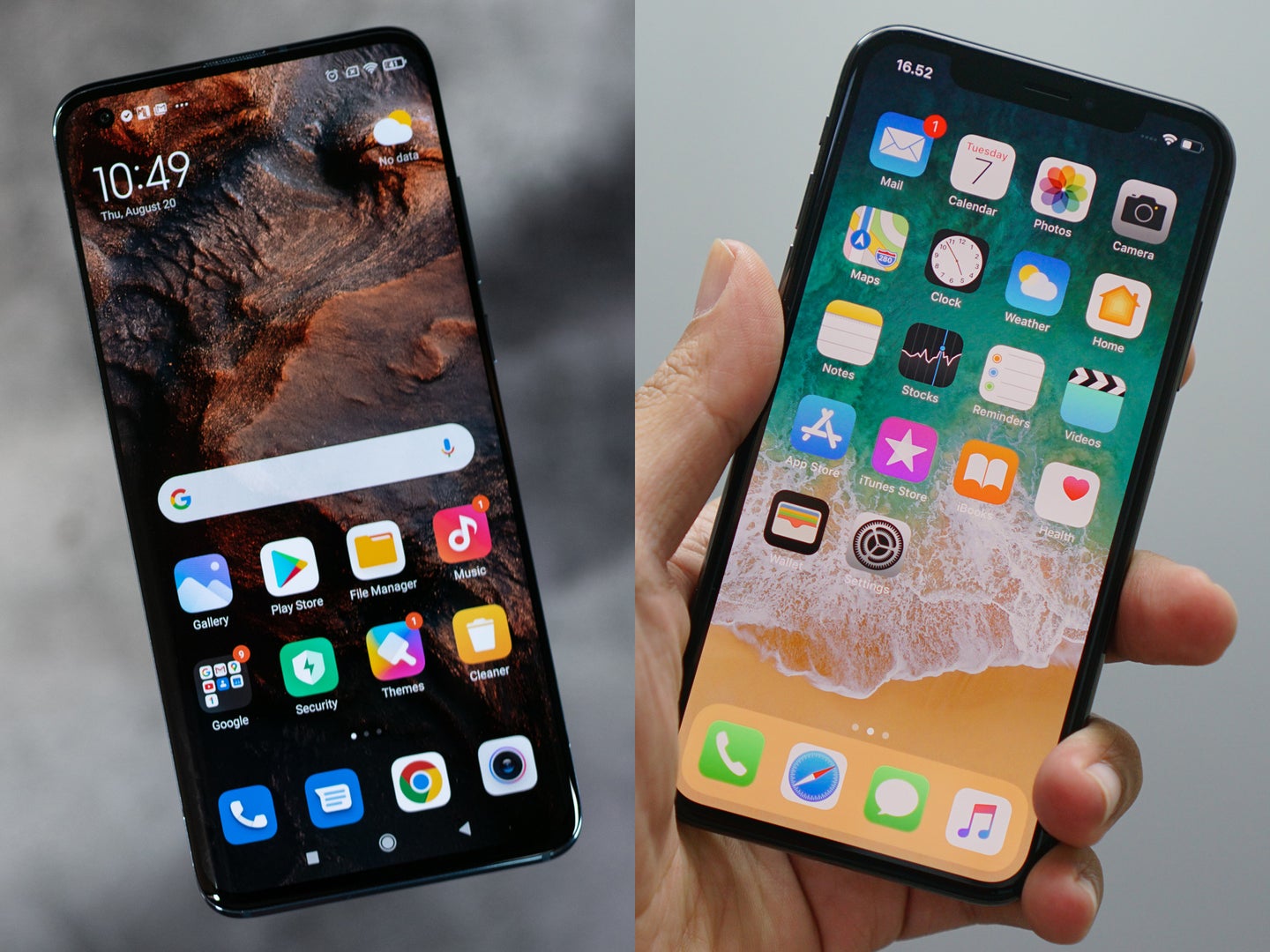
If you’re mostly happy with your Android phone but long for a more iPhone-like look to the software interface, there’s an app for that. They are called launchers and can revolutionize the look and feel of your phone’s operating system. Several of them specialize in the iOS aesthetic and can transform your Android device to make it look almost identical to Apple’s.
As interesting as this sounds, you should keep in mind this is only a surface-level change, so you’re not suddenly going to get FaceTime or iMessage on your Samsung. Your apps and system settings will stay the same, and data such as contacts and text messages will remain unchanged.
Once you install and set it up, the launcher will wrap everything in a different interface, allowing you to enjoy the polished design of iOS without having to pay for your own iPhone or sign up for any Apple services.
And if you change your mind along the way and want to return to your Android ways, know that reversing the process is easy.
How launchers work
Android is well known for being more customizable than iOS, and launchers are a good example. Essentially, they take over whenever you boot up your phone or head back to the home screen, and control your apps’ layout, how your notifications and lock screen look, and even how you navigate around screens and menus.
[Related: 4 ways to know if iOS or Android is better for you]
But all these changes happen on top of Android, so think of launchers as new coats of paint for your phone’s interface. You’ll still have the same apps underneath, and settings you’ve configured (such as Do Not Disturb modes) will work just the same.
You can switch between launchers easily, but the option won’t appear until you install a third-party one. From Settings, pick Apps, Default apps, and then Home app to make your pick. If you don’t want to use a particular launcher app anymore, you can simply uninstall it: Tap and hold the icon in the app drawer, then drag it to the Uninstall button at the top.
Launcher iOS 16
As the name suggests, Launcher iOS 16 is updated with the latest iOS 16 look, but it doesn’t have all of the features yet, so you won’t see the lock screen changes in this launcher, for example. What you do get are iOS-like icons, widgets, and app folders.
When you install the launcher, you’ll get a long list of customization options you can set up, going from the size of the app icons on your home screen to how the launcher mimics the App Library feature on iOS. It can even make your default Google app icons look like default Apple app icons, making the Google Meet icon look like it’s FaceTime, for example.
In the launcher, you can tap Control Center to change how you summon this iOS-esque settings panel and which options appear on it. It’ll take you some time to work through all the configurations available, but the app will give you full control over how the software interface looks.
Launcher iOS 16 is free to use, but you’ll have to look at quite a few ads.
Phone 13 Launcher
Another iOS launcher option is the rather confusingly named Phone 13 Launcher. This is another comprehensive iOS-style launcher that gives you an app grid, wallpapers, lock screen options, and search options designed to copy what Apple has done on its own smartphones.
Get started by choosing your wallpaper, and then you can concentrate on arranging your apps as you want on the home screen. The launcher can replace Android icons with their iOS equivalents—for the main Settings app, for example—and comes with a very authentic-looking Control Center that you can call up with a swipe.
There are even options such as Scroll Effect and Font Style to really dig deep into the details of your iOS-looking interface, and you even get Apple-style notification badges on top of app icons, if you want them.
Phone 13 Launcher is also free to use, but just like the previous entry on our list, it comes packed with a fair few ads.
Launcher iOS 15
Last in our selection of iOS launchers is Launcher iOS 15. At the time of writing, there’s no indication that an iOS 16 refresh is on the way, but the app has been regularly updated in the past, so we hope it’ll feature Apple’s new look soon.
[Related: Switching from iPhone to Android has never been easier]
The app is particularly good at letting you drop in widgets on your home screen that look just like the ones you get on the iPhone for weather and battery life, for example. Launcher iOS 15 is also able to update stock Android app icons to look like their iOS equivalents, it comes with its own versions of the Control Center and the App Library, and you can toggle between dark and light modes, too.
Even the main settings panel for the app looks like iOS: It covers everything from the size of the navigation bar (via Desktop) to the folder management system for apps (via App Library).
As with the other options in our list, the app is free and ad-supported.
The post How to make Android look like iOS appeared first on Popular Science.
from Popular Science https://ift.tt/rfDQJek




0 Comments